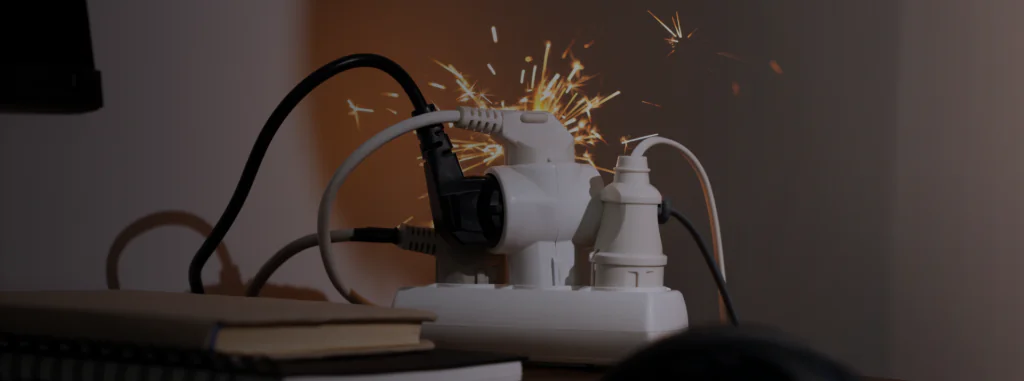The Real Dangers of Electrical Hazards in the Workplace
Electrical safety is a critical aspect of workplace health and safety that all organisations must prioritise. Neglecting proper electrical safety measures can lead to severe injuries, fatalities, and substantial financial penalties.
Recent Cases Involving Electrical Safety
Some recent cases reported by the HSE show the consequences of inadequate electrical safety protocols and the real dangers of electrical hazards in the workplace:
- Waste Management Company Fined After Worker Suffers Burns: On 14 July 2021, a worker at a recycling plant in Lincolnshire sustained serious burns when a metal crowbar he was using contacted a live electrical conductor, causing an explosion. The task was neither properly planned nor risk assessed, and the electrical cables were not isolated before work commenced. The company was fined £200,000 for these lapses.
- Car Wash Firm Penalised for Failing to Protect Workers and Public: Between July 2021 and November 2022, a Devon-based car wash company repeatedly failed to address electrical safety risks, despite multiple enforcement notices. Employees used electrical appliances outdoors without ensuring the installations were safe, posing dangers to both workers and the public. The firm was fined £40,000 for these violations.
- Cosmetics Firm Fined After HSE Inspection Reveals Serious Failings: In July 2022, an unannounced HSE inspection at a cosmetics company in Halifax uncovered systemic electrical deficiencies that posed serious risks of electric shock and electrocution to workers. The company had allowed these breaches to persist over an extended period and was fined £56,695.
Electrical Hazards in the Workplace
Common electrical hazards include:
- Electric Shock: Occurs when a person comes into contact with a live electrical component, potentially leading to muscle contractions, burns, or cardiac arrest.
- Electrocution: A fatal electric shock resulting from exposure to high-voltage electricity.
- Electrical Burns: Tissue damage caused by electricity passing through the body, often affecting internal organs.
- Fires: Electrical faults can ignite fires, leading to property damage and endangering lives.
Managing Electrical Risks
To mitigate these risks, organisations should implement the following measures:
- Regular Inspections and Maintenance: Ensure all electrical installations and equipment are routinely inspected and maintained by qualified personnel to identify and rectify potential hazards.
- Risk Assessments: Conduct thorough risk assessments before performing tasks involving electrical systems to identify potential dangers and implement appropriate control measures.
- Isolation Procedures: Establish and enforce strict protocols to ensure electrical equipment is de-energised and isolated before maintenance or repair work begins.
- Training and Competence: Provide comprehensive training for employees on electrical safety practices. This should ensure they understand the risks and the correct procedures to follow.
- Use of Appropriate Equipment: Supply workers with suitable personal protective equipment (PPE) and tools rated for electrical work to minimise exposure to hazards.
- Compliance with Regulations: Adhere to relevant electrical safety regulations and standards, such as the Electricity at Work Regulations 1989, to maintain a safe working environment.
By proactively addressing electrical safety hazards through these measures, organisations can protect their employees, avoid legal penalties, and promote a culture of safety within the workplace.
At HPC we have trained and experienced consultants who are available to assist you with ensuring your company is fully compliant with all electrical safety requirements.
To find out more information or to discuss electrical safety in the workplace, please get in contact with our team of experts.
T: 0330 107 1037
E: contact@hpc.uk.com
LinkedIn: High Performance Consultancy
